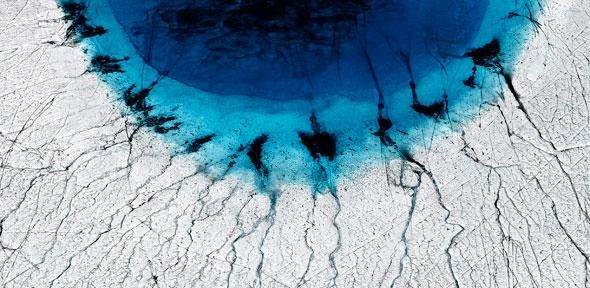Greenland’s Melting Ice Sheet Already Beyond Point Of No Return, Study Warns
KEY POINTS
- Researchers conducted a study on Greenland's melting ice sheet
- Snowfall could no longer replenish Greenland's ice sheet
- Greenland's massive ice sheet may disappear completely
The melting ice sheet in Greenland has already passed the point of no return, a new study revealed. According to researchers, snowfall could no longer keep up with the rate of ice melt affecting Greenland’s glaciers.
The new study on Greenland’s melting ice sheet was conducted by a team of researchers from the University of Ohio. They presented their findings in a paper published in the journal Nature.
For the study, the researchers went through 40 years of data collected by satellites monthly. They focused on about 200 massive glaciers in Greenland’s ice sheet and how they changed through the years.
Through their observations, the researchers discovered that Greenland’s ice sheet, which is the second-largest body of ice in the world, is melting at an alarming rate. The rate of snowfall, which is responsible for replenishing the ice sheet each year, can no longer match the pace of glacial melt, the scientists said.
“We’ve been looking at these remote sensing observations to study how ice discharge and accumulation have varied,” Michalea King, the lead author of the study and a researcher at The Ohio State University’s Byrd Polar and Climate Research Center, said in a statement. “And what we’ve found is that the ice that’s discharging into the ocean is far surpassing the snow that’s accumulating on the surface of the ice sheet.”
Due to the rate of the ice melt, snowfall would still not be able to properly replenish Greenland’s ice sheet even if global temperatures stopped rising, the researchers noted.
The ice sheet has already reached a point where glacial melt could no longer be reversed, researchers said. This means the massive ice sheet may completely disappear eventually.
Once the ice sheet completely melts away, sea levels will rise by over 20 feet by the year 3000, resulting in the disappearance of various coastal cities in different parts of the world.
“Glacier retreat has knocked the dynamics of the whole ice sheet into a constant state of loss,” study co-author Ian Howat stated. “Even if the climate were to stay the same or even get a little colder, the ice sheet would still be losing mass.”

© Copyright IBTimes 2025. All rights reserved.





















